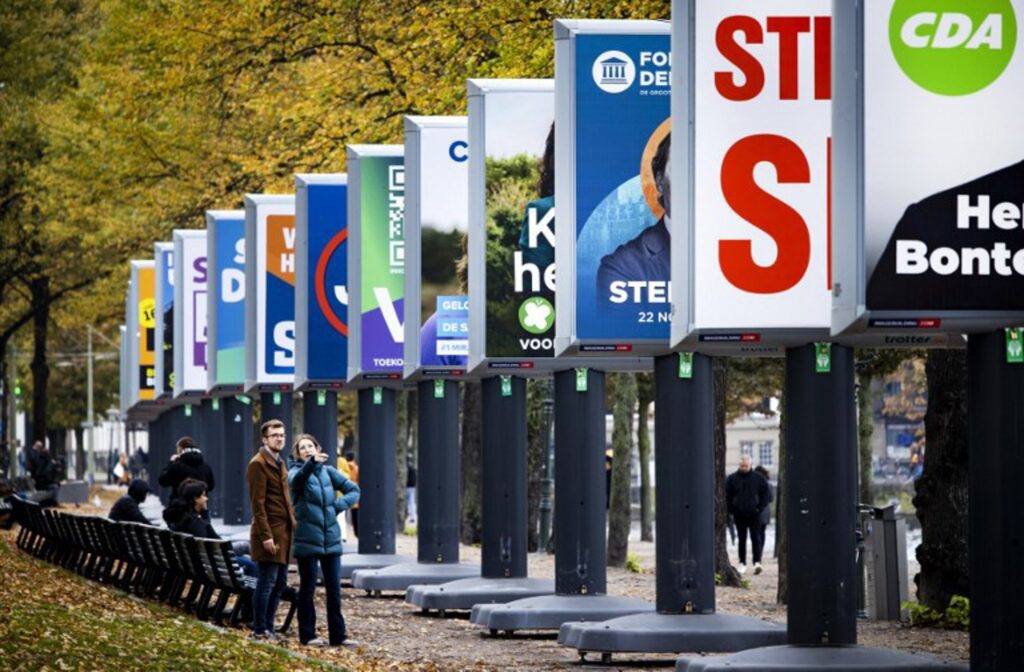Polling stations across the Netherlands have on Wednesday morning started welcoming voters for the Dutch Parliamentary elections. With Prime Minister Mark Rutte standing down, seats in the Lower House (Tweede Kamer) are up for grabs.
The race so far has been neck and neck since the election was forced after the coalition government of Rutte collapsed in July due to turbulent negotiations between the four ruling parties over refugee reception policy. The last Lower House elections took place on 17 March 2021 and normally wouldn't for another four years.
Over 13.3 million eligible voters aged 18 and above are entitled to cast their ballots. Some have already cast their votes at mobile polling stations or booths in railway stations but most stations opened at 07:30. All locations will close by 21:00 when counting will begin.
The last elections saw an almost 80% voter turnout. Unlike Belgium, the Netherlands doesn't impose compulsory voting, though it did until 1970. Legislators decided that it did not boost confidence in democracy.
Which parties to watch
This year, 26 parties are participating in the elections – down from 37 in 2021. The departure of Mark Rutte (linked to the liberal VVD party) after 13 years as premier means that these parliamentary elections will likely change the Dutch political landscape significantly.
After the Lower House election, political parties negotiate to form a coalition. Rutte is not standing for re-election as Prime Minister and his future in politics in any capacity still remains unclear.
The latest I&O poll released on Tuesday night showed the PVV, Geert Wilders' radical-right party, is in the running to win. At present, the top three parties are Rutte's VVD party, now run by Dilan Yesilgöz (predicted 27 seats); the left-wing PvdA/GroenLinks party led by the former Vice President of the European Commission Frans Timmermans (also predicted 27 seats); and the PVV (26 seats).
Polls running up to the elections had been fairly stable but Wilders' party has been rising strongly in the days immediately before the election, with an estimated one in three voters undecided just a week before going to the polls.
Related News
- N-VA leader De Wever 'willing' to become Belgian Prime Minister after 2024
- 'Typical Icarus figure': The rise and fall of Conner Rousseau
An I&O analysis noted that Wilders' party has mostly drawn voters away from the fourth-largest party New Social Contract (NSC), a group formed just three months ago by centrist Pieter Omtzigt who has made a name for himself after uncovering a childcare benefits scandal. Interestingly, his party is seen as anti-establishment despite Omtzigt not being a political outsider by any stretch.
Many voters were convinced to vote PVV following a debate on the TV channel SBS6, during which Wilders clearly stated his vision for migration – the biggest topic and one by which PVV defines itself. The party also attracts voters who want to prevent GroenLinks-PvdA from co-ruling.
Meanwhile, GroenLinks-PvdA has also gained seats compared to last week, with many voters indicating this is the result of tactical voting to avoid an all-right cabinet.

